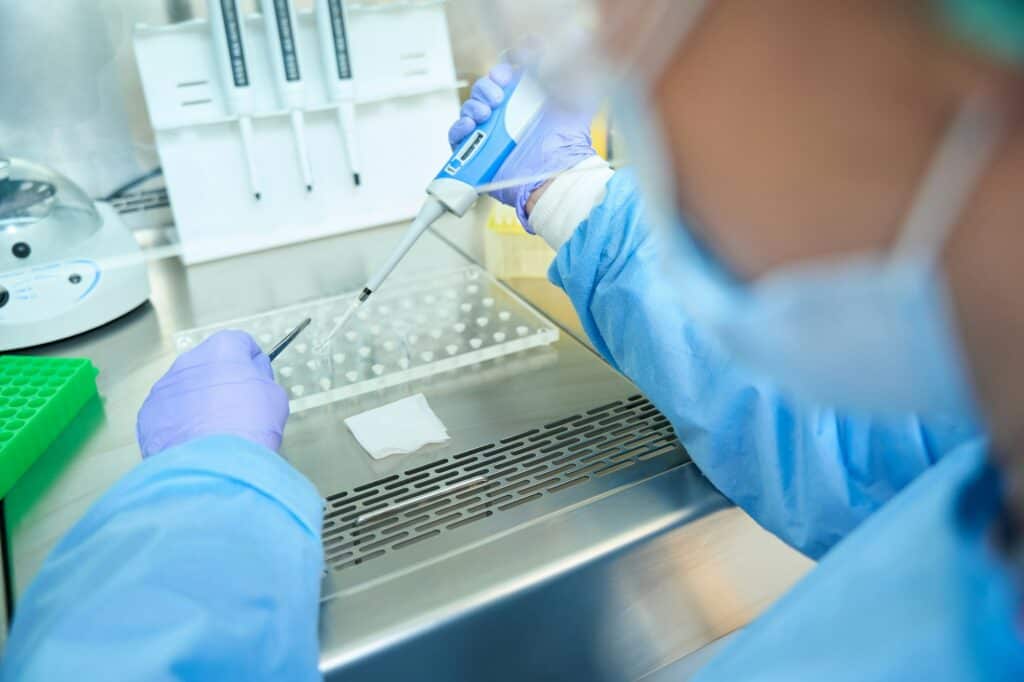Medicine, with its ever-evolving advancements, stands as a testament to humanity’s pursuit of better health and well-being. At the core of this endeavor lies diagnostic testing—a cornerstone practice essential for accurate disease identification and subsequent treatment planning. In the intricate web of healthcare, diagnostic testing emerges as a critical thread, guiding clinicians towards informed decisions and patients towards tailored interventions. This article delves into the indispensable role of diagnostic testing in modern medicine and its profound impact on patient care and outcomes.
Understanding the Significance of Diagnostic Testing in Medicine
Diagnostic testing serves as the cornerstone of modern medicine, facilitating the accurate identification of diseases and conditions. By analyzing biological samples, imaging, and other diagnostic tools, healthcare professionals can make informed decisions about treatment strategies, prognosis, and patient management.
Moreover, diagnostic tests play a crucial role in disease surveillance, outbreak detection, and public health initiatives, contributing to the overall well-being of communities. Understanding the significance of diagnostic testing underscores its impact on individual patient care, population health, and the advancement of medical knowledge.
The Evolution of Diagnostic Testing: From Tradition to Technology
The landscape of diagnostic testing has undergone a remarkable transformation, evolving from traditional methods to sophisticated technological platforms. Historically, diagnostic tests relied on manual techniques and limited analytical tools. However, with the advent of automation, molecular biology, and bioinformatics, diagnostic testing has become more precise, efficient, and accessible.
Today, techniques such as polymerase chain reaction (PCR), next-generation sequencing (NGS), and immunoassays revolutionize disease detection and characterization. The evolution of diagnostic testing reflects not only technological advancements but also the collaborative efforts of researchers, clinicians, and industry partners striving to improve healthcare outcomes.
Key Principles Behind Diagnostic Testing in Healthcare
Diagnostic testing in healthcare operates on fundamental principles aimed at ensuring accuracy, reliability, and patient safety. These principles encompass pre-analytical, analytical, and post-analytical phases of testing, emphasizing proper specimen collection, appropriate test selection, and accurate result interpretation.
Quality assurance measures, adherence to regulatory standards, and continuous professional development are integral to upholding the integrity of diagnostic testing. By adhering to these key principles, healthcare providers can deliver high-quality diagnostic services that meet the diverse needs of patients and contribute to optimal clinical outcomes.

Types of Diagnostic Tests: Exploring the Diverse Landscape
The field of diagnostic testing encompasses a wide array of tests tailored to specific diseases, conditions, and patient populations. These tests can be classified into various categories based on their underlying principles, methodologies, and intended purposes. Common types of diagnostic tests include laboratory tests (e.g., blood tests, urine tests), imaging tests (e.g., X-rays, MRI scans), genetic tests (e.g., DNA sequencing, genetic screening), and molecular tests (e.g., PCR, gene expression profiling). Exploring the diverse landscape of diagnostic tests reveals the breadth and depth of available diagnostic tools, each playing a unique role in healthcare delivery and disease management.
The Importance of Precise Diagnostic Results
In healthcare, diagnostic accuracy is paramount, as it directly influences treatment decisions, patient outcomes, and healthcare resource utilization. Accurate diagnostic results rely on a combination of factors, including test sensitivity, specificity, positive and negative predictive values, and pre-test probability.
Furthermore, factors such as specimen quality, assay performance, and clinician expertise also impact diagnostic accuracy. Ensuring the reliability and validity of diagnostic results requires ongoing quality assurance, proficiency testing, and adherence to evidence-based guidelines. Recognizing the importance of accuracy underscores the commitment of healthcare providers to delivering safe, effective, and patient-centered care.
The Role of Diagnostic Testing in Disease Prevention and Early Detection
Diagnostic testing plays a crucial role in disease prevention and early detection, enabling timely interventions that can mitigate disease progression and improve outcomes. Screening tests, such as Pap smears for cervical cancer and colonoscopies for colorectal cancer, aim to detect diseases in their early stages when treatment is most effective.
Moreover, diagnostic tests for risk factors and biomarkers help identify individuals at higher risk of developing certain conditions, allowing for targeted preventive measures and personalized healthcare interventions. By emphasizing the importance of disease prevention and early detection, diagnostic testing contributes to population health initiatives and reduces the burden of disease on healthcare systems.
How Diagnostic Testing Enhances Healthcare Access
Diagnostic testing empowers patients by providing them with valuable information about their health status, enabling informed decision-making and active participation in their care. Through diagnostic tests, patients gain insights into their risk factors, disease progression, and treatment options, empowering them to collaborate with healthcare providers in developing personalized care plans.
Additionally, diagnostic testing facilitates access to specialized services, second opinions, and innovative treatments, enhancing patient-centered care and improving health outcomes. By leveraging diagnostic testing to empower patients, healthcare providers can foster a culture of shared decision-making, trust, and mutual respect in healthcare delivery.
A Vital Component in Personalized Medicine
Personalized medicine relies on diagnostic testing to tailor healthcare interventions to individual patients based on their unique genetic makeup, biomarker profiles, and clinical characteristics. By leveraging molecular diagnostics, genetic testing, and precision imaging techniques, personalized medicine aims to optimize treatment efficacy, minimize adverse effects, and improve patient outcomes.
Diagnostic tests play a pivotal role in identifying actionable targets, predicting treatment responses, and monitoring treatment effectiveness over time. As personalized medicine continues to evolve, diagnostic testing remains a vital component in delivering targeted, evidence-based care that addresses the diverse needs of patients across different disease states.
Navigating the Complexities of Diagnostic Testing
Despite its benefits, diagnostic testing presents various challenges related to test accuracy, accessibility, affordability, and interpretation. Technical limitations, variability in test performance, and resource constraints can affect the reliability and validity of diagnostic results. Furthermore, disparities in healthcare access, insurance coverage, and healthcare infrastructure may hinder the equitable distribution of diagnostic services.
Addressing these challenges requires collaborative efforts among healthcare stakeholders, policymakers, and industry partners to develop innovative solutions, improve test quality, and expand access to diagnostic testing. By navigating the complexities of diagnostic testing, healthcare providers can overcome barriers and deliver high-quality care that meets the needs of diverse patient populations.
Leveraging Testing for Treatment Planning and Monitoring
Diagnostic testing serves as a valuable tool in treatment planning and monitoring, guiding healthcare providers in selecting appropriate therapies, adjusting treatment regimens, and assessing treatment responses. Biomarker testing, imaging studies, and functional assessments help characterize disease severity, predict treatment outcomes, and identify potential complications.
Additionally, diagnostic tests enable personalized dosing strategies, drug monitoring, and therapeutic drug monitoring, optimizing medication efficacy and safety. By leveraging testing for treatment planning and monitoring, healthcare providers can tailor interventions to individual patient needs, maximize treatment benefits, and minimize adverse effects, ultimately improving patient outcomes and quality of life.
Innovations in Diagnostic Testing
Advancements in technology, bioinformatics, and biomarker discovery continue to drive innovations in diagnostic testing, pushing the boundaries of what is possible in healthcare diagnostics. Emerging technologies such as liquid biopsy, point-of-care testing, and wearable devices offer new opportunities for non-invasive, real-time monitoring of disease biomarkers and health parameters.
Furthermore, advances in artificial intelligence and machine learning enable the development of predictive models, diagnostic algorithms, and decision support tools that enhance diagnostic accuracy and efficiency. By embracing innovation, healthcare providers can harness the power of diagnostic testing to revolutionize patient care, transform clinical workflows, and accelerate progress towards precision medicine.
The Economic Impact of Diagnostic Testing
Diagnostic testing plays a significant role in healthcare economics, influencing resource allocation, healthcare spending, and reimbursement policies. While diagnostic testing contributes to improved patient outcomes, cost-effectiveness, and healthcare efficiency, it also poses economic challenges related to test affordability, overutilization, and reimbursement disparities.
Balancing the costs and benefits of diagnostic testing requires careful consideration of factors such as test utility, clinical value, and long-term outcomes. Moreover, innovative financing models, value-based payment systems, and health technology assessments can help optimize the economic impact of diagnostic testing while ensuring equitable access and sustainable healthcare delivery.
Ethical Considerations in Diagnostic Testing
Ethical considerations play a crucial role in the practice of diagnostic testing, safeguarding patient rights, autonomy, and privacy. Issues such as informed consent, genetic counseling, and data protection are paramount in ensuring that patients understand the implications of diagnostic testing and can make informed decisions about their healthcare.
Additionally, concerns about genetic discrimination, stigmatization, and confidentiality underscore the need for robust ethical frameworks and regulatory oversight in diagnostic testing. By upholding ethical principles, healthcare providers can foster trust, transparency, and accountability in the delivery of diagnostic services, promoting patient-centered care and ethical practice standards.
The Interdisciplinary Approach to Diagnostic Testing
Collaborative care models emphasize the importance of interdisciplinary teamwork and communication in optimizing diagnostic testing processes and patient outcomes. Healthcare professionals from diverse disciplines, including physicians, nurses, laboratory scientists, and allied health professionals, collaborate to ensure coordinated care delivery, effective test utilization, and seamless care transitions.
Additionally, patient engagement, shared decision-making, and care coordination are central tenets of collaborative care models, promoting patient-centeredness and continuity of care. By embracing a collaborative approach to diagnostic testing, healthcare providers can leverage collective expertise, resources, and perspectives to deliver comprehensive, holistic care that addresses the multifaceted needs of patients and improves healthcare delivery systems.
The significance of diagnostic testing in medicine cannot be overstated. From disease prevention to personalized treatment planning, it plays a pivotal role in improving patient outcomes and enhancing overall healthcare delivery. At ActiveMed Integrative Health Center in Encinitas, we understand the importance of accurate diagnostics in achieving optimal health.
Contact us today at 858-673-4400 or email info@activemedhealth.com to learn more about our comprehensive diagnostic testing services. Let us partner with you on your health and wellness journey. ActiveMed Integrative Health Center is dedicated to providing exceptional natural medical services to assist you with your health and wellness goals.



